Space
Sign up for our newsletter
We summarize the week's scientific breakthroughs every Thursday.
-
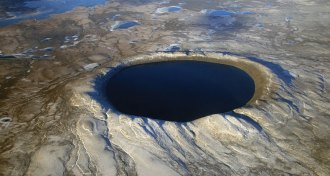 Earth
EarthMost of Earth’s impact craters await discovery
Hundreds of undiscovered impact craters probably dot Earth’s surface, new research estimates.
-
 Astronomy
AstronomyPluto at last
Precision matters, whether looking at global temperatures, subatomic particles or the carefully timed approach to a faraway world.
By Eva Emerson -
 Planetary Science
Planetary ScienceWater’s origin story, science and sci-fi and more reader feedback
Readers discuss how Earth got its water, chat about a hot spot's violent past and more.
-
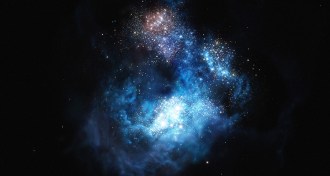 Astronomy
AstronomyDistant galaxy may contain primeval stars
A stockpile of the first generation of stars might be lighting up gas in a galaxy that existed roughly 800 million years after the Big Bang.
-
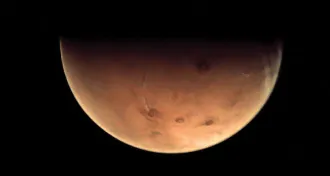 Planetary Science
Planetary ScienceMethane found in meteorites from Mars
Methane stored in Martian meteorites points to possibly habitable environments beneath the surface of the Red Planet.
-
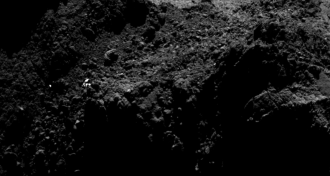 Planetary Science
Planetary ScienceComet lander Philae phones home
The European Space Agency has received signals for its comet lander Philae, which touched down on comet 67P/Churyumov-Gerasimenko in November and has been in hibernation since.
-
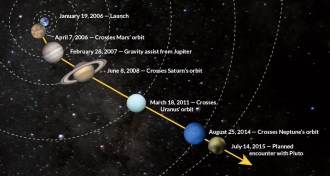 Planetary Science
Planetary ScienceRendezvous with Pluto
Earth will get its first good look at Pluto and its five known moons when New Horizons sails past on July 14.
-
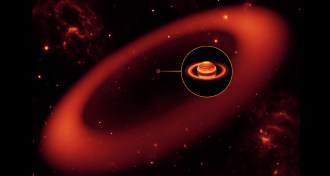 Planetary Science
Planetary ScienceSaturn’s widest ring measured
Saturn has an invisible belt that's nearly 270 times as wide as the giant planet, researchers report.
-
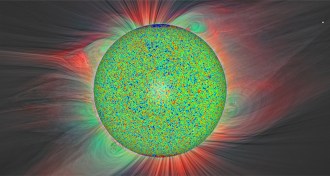 Astronomy
AstronomySome of sun’s magnetic fields may act more like forests
A swaying forest of mangrovelike magnetic fields on the sun could be the answer to why the solar atmosphere is millions of degrees hotter than the surface.
-
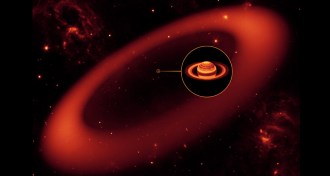 Planetary Science
Planetary ScienceWISE satellite measures girth of Saturn’s widest ring
Saturn’s dark, outermost ring is about 270 times as wide as the planet itself.
-
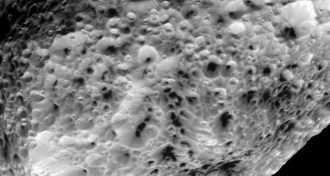 Planetary Science
Planetary ScienceCassini gets last look at Saturn’s spongy satellite Hyperion
The Cassini spacecraft buzzed Saturn’s spongy moon Hyperion for the final time and sent back more pictures of this odd little satellite.
-
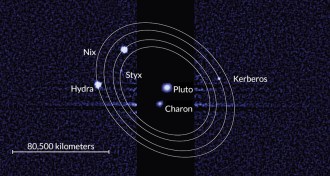 Planetary Science
Planetary SciencePluto’s four littlest moons probably born in a crash
On the eve of the arrival of the New Horizons spacecraft, Pluto’s tiny moons hint at a common origin.